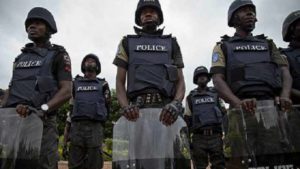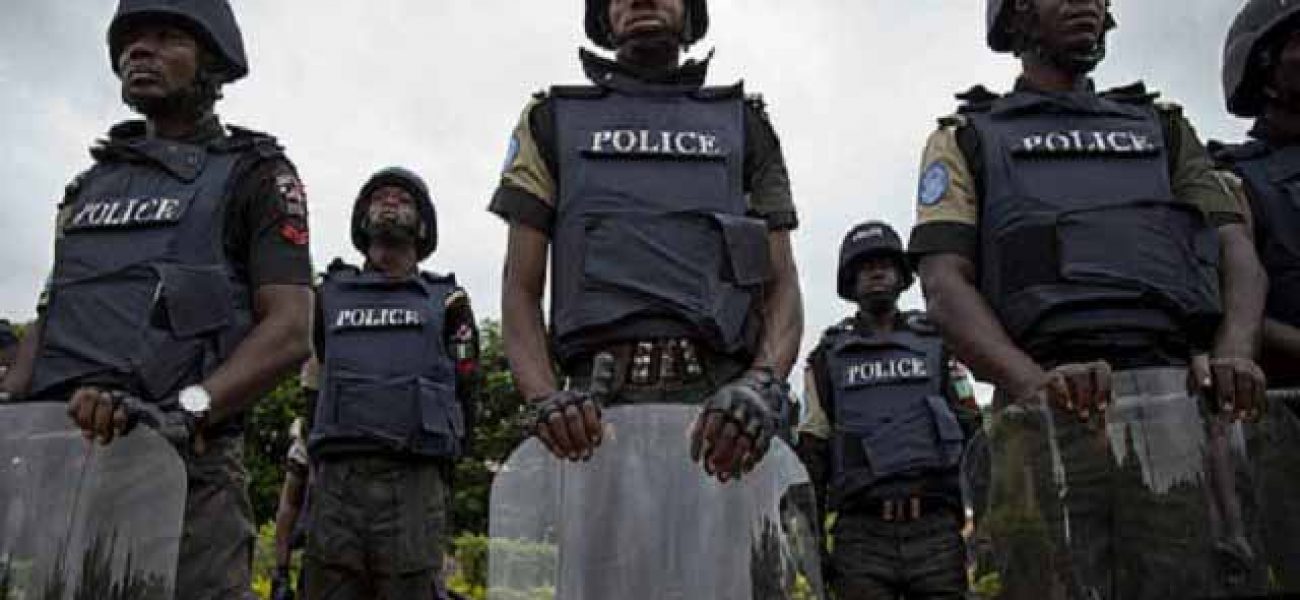 The National Assembly has responded to the latest wave of killings in Plateau State and several other States by calling for the decentralisation of the Nigeria Police from the Federal level to the States.
The National Assembly has responded to the latest wave of killings in Plateau State and several other States by calling for the decentralisation of the Nigeria Police from the Federal level to the States.
Although the call for State Police has resonated in Nigeria for a number of years, the 8th Assembly has resolved to undertake a fresh round of Constitution amendments to include State Police after President Buhari admitted his “helplessness[1]” in dealing with the violence despite being vested with the Executive powers of the Federation under section 5(1)(a) of the 1999 Constitution (as amended) and key powers of appointment of the country’s security chiefs.
Section 5 (1) (a) states that
Subject to the provisions of this Constitution, the executive powers of the Federation:
(a) shall be vested in the President and may subject as aforesaid and to the provisions of any law made by the National Assembly, be exercised by him either directly or through the Vice-President and Ministers of the Government of the Federation or officers in the public service of the Federation;
Currently, only a Nigeria Police Force established at the Federal level is recognised under the Constitution. Section 214(1) of the 1999 Constitution (as amended) states that:
“There shall be a Police Force for Nigeria which shall be known as the Nigeria Police Force and subject to the provisions of this section, no other Police Force shall be established for the Federation or any part thereof.” Hence, the agitations for review by Nigeria’s Legislative arm.”
The Senate, in response to the security crises in the country, has mandated its ad-hoc Committee on Constitution review to propose legislation on State Police before the end of July 2018. Similarly, in the House of Representatives, Hon. Femi Gbajabiamila, the House majority leader presented a Bill that seeks to amend the Constitution to allow for State Police.
Nonetheless, many observers argue that current proposals to decentralise the Nigeria Police Force must be weighed carefully in light of its serious ramifications. For example, under extant provisions, funding for the Police is something that the Federal government currently handles as issues related to Police and security services is contained under the Exclusive Legislative List in the Second Schedule, Part 1 of the 1999 Constitution. One of the questions being asked is whether the States, many of which are not viable will be able to fund a Police Service which is already underfunded at the Federal level. As it is, the Nigeria Police Force is already one of “the least paid” security organisations in the world operating below the recommended United Nations ration of 1:400 (one police officer to 400 persons[2]).
Secondly, there are fears that a State Police may be “premature” in a country as heterogeneous as Nigeria with so many political, religious and ethnic divides. The reason being that reducing the powers of the President under the current structure to enable the appointment of Commissioners/Police Heads by Governors could worsen current challenges of bias, lack of independence and neutrality already being levelled against the Nigeria Police at the Federal level. In other words, there are fears that enabling a State Police could be utilised as an apparatus to silence opposition parties, breed authoritarianism and stifle Nigeria’s hard earned democracy.
However, there are supporters of the State police system such as the Deputy Senate President, Ike Ekweremadu who is of the view that “State Police” will allow the government achieve its fundamental objective of protecting the security and welfare of the people. This comes as an Amnesty International Report accused the government of complacency in the rising insecurity across the country. Amnesty’s independently verified estimates show that 1,813 people have been murdered in 17 States in 2018 alone, twice the figure of the 894 killed in 2017 already[3]. Other supporters of State Police also point to the “language” and “ethnic” barriers sometimes faced by Police Officers posted to States they are unfamiliar with and are of the view that a State Police would strengthen the strenuous relationship between the police and citizens.
There are nonetheless also factions that are against State Police but accept that there could be other reforms to improve the welfare of police officers and boost their morale via other legislative proposals outside of amending the Constitution.
For instance, in the House of Representatives for example, a Bill that creates a fund enabling the Police to procure equipment such as body amour, ballistic vests, arms, vehicles as well as for their training and welfare has passed third reading[4]. There is also a Bill establishing a Nigeria Police Reform Trust Fund for a period of six (6) years from their date it is passed into law to cover personnel of the Nigeria Police Force (NPF), (including their auxiliary staff at home and abroad) to improve their capacity to discharge their duties and responsibilities. Proponents of this view of police reform argue that providing for better police welfare and training through “legislation[5]” may actually be the remedy to current challenges faced by the Police as seen in the recent protests by police officers in Maiduguri over unpaid allowances. An advantage of this view is that it seeks to provide a solution through ordinary legislation requiring passage by both chambers of the National Assembly and Presidential assent rather than the more rigorous process of Constitution amendment stipulated under section 9 (2) of the 1999 Constitution (as amended).
Thus, it would appear that the call for State Police via Constitution amendment must be weighed carefully in light of reality and its practicability. It will be recalled that the recently concluded Constitution Alteration process that culminated in the transmission of adopted Bills to the President this year; long began at the inception of the 8th Assembly in 2015.

